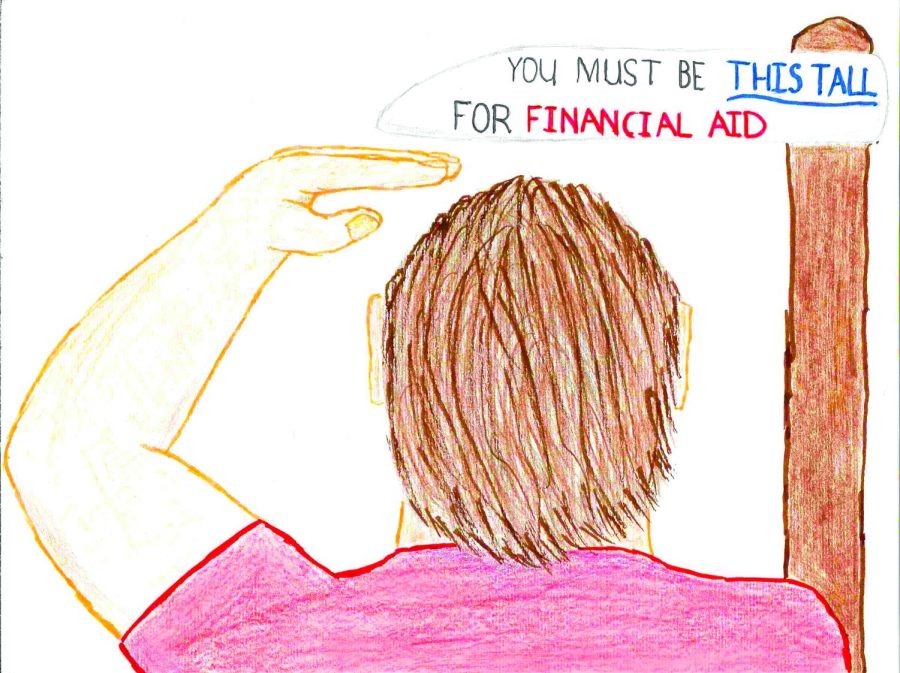EDITORIAL: Financial aid experience shouldn’t be demeaning
September 24, 2022
Without the help of financial aid, many students would not attend Loyola. That is a simple fact. Between incomplete households, a stagnating economy, and just not being able to afford ludicrous tuition prices, there is no shortage of reasons as to why a student may need financial support of some kind.
Out of the number of college students who have taken any financial planning classes, which is just over 40%, only 15% of those polled said they had the education necessary to pay back their student loans.
Yes, there is an expectation for us as adults to be more conscious of our own financial status. However, the reality is that our financial situations are the byproduct of our parents’ finances, which for a variety of reasons can be difficult to access.
It is not wrong to need financial aid. But with how students have reported that the financial aid department interacts with them, it seems like the professionals there would like you to believe otherwise.
Rather than treating students like people who are still learning about financial literacy, much less the world, employees of the financial aid department instead act as if we are supposed to know everything already. The numbers prove that we don’t.
Financial aid is slow to inform on whether students have even received financial packages, and even slower when it comes to delivering them. At this point in the school year, some people still don’t know whether or not they have financial aid or if they do, how much it is. This makes a potentially already stressful semester even more so for both them and their families.
The root of all of these problems is a lack of understanding and empathy for students and their situations. There seems to be a disconnect between the words and actions of the financial aid department. Instead of providing the financial support they promise, students are left burdened by the idea and distress of potentially being thousands of dollars in debt, unable to pay for the rest of their college education.
As tuition costs continue to soar around the country, financial aid proves more and more necessary to get an education, especially for students coming from middle to low income backgrounds.
And Loyola proves itself to not be above the herd when it comes to its tuition costs. Over the past 10 years, tuition has risen by an average of 3.1% every year, with tuition last year being $43,498 compared to the $64,994 median household income in 2020. Combine that fact and the service Loyola’s financial aid department provides – the rise proves more and more daunting. And financial aid employees don’t seem to understand that not every student is financially upheld by their parents.
Personal financials even in the best of circumstances can be painful. Everyone has different environments that we are born into, and nobody can control whether the life they’re born into is going to be good or bad, rich or poor, financially literate or not. Not acknowledging those conditions doesn’t magically make them go away. In fact, it adds more stress and may bring up harsh memories that a student would rather forget.
None of this changes the fact, though, that many students receiving financial aid are getting thrust face-first into a broken system we have never encountered before. All we’re asking for is help to navigate this haphazard world of financials.
No matter what, though, it isn’t right to treat students as lesser or not as intelligent as expectations dictate. All of us are victims of a broken system in some way, shape or form, and being demeaning to us over a lack of knowledge or our personal situations is not going to change that. It’s not that we want to be pampered. We just want a certain level of respect and understanding so that, going forward, we can operate together without struggle.








